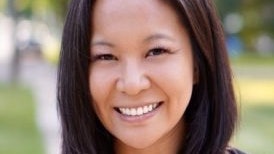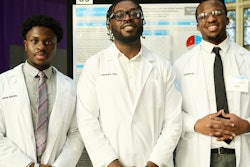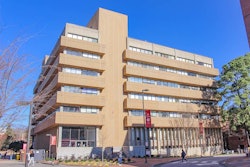The past several years have been difficult for the mental health of Americans of all backgrounds. But the burdens of the COVID-19 pandemic and consistent reports of police violence – dubbed a “racism pandemic” by the president of the American Psychological Association – have fallen more heavily on Americans who are Black, Indigenous, or other people of color (BIPOC). July is BIPOC Mental Health Awareness Month and medical organizations, advocacy groups, and the U.S. government are highlighting the unique mental health needs of BIPOC people and trying to find solutions.
 Dr. Sasha Zhou
Dr. Sasha Zhou
The reasons for this are complex. BIPOC Americans are more likely to be uninsured and to encounter communication barriers that make treatment hard to access. Their cultural backgrounds may stigmatize mental illness and seeking help, or simply conceive of the issues differently. And there is a long history of racism and discrimination in the mental health field. Biased psychological analyses of African Americans, for example, were used to justify slavery and to argue against abolition and even today, Black men are over-diagnosed with schizophrenia and under-diagnosed with post-traumatic stress disorder.
Although the history is long, BIPOC Mental Health Awareness Month is a relatively recent development. It was formally recognized by Congress in 2008, as Bebe Moore Campbell National Minority Mental Health Awareness Month. Although the government still refers to it that way, many organizations have switched to BIPOC Mental Health Awareness Month, believing that that name is more accurate, and less diminishing and exclusionary.
Under both names, organizations are acknowledging the month online, publishing resources and encouraging people to share information and personal stories on social media. It seems to be taking, at least with Generation Z.
“This is the generation of young people that are fully immersed in TikTok and Instagram,” said Dr. Sasha Zhou, an assistant professor in the Department of Public Health at Wayne State University and a co-investigator with the Healthy Minds Network. “These are platforms that highlight things like BIPOC mental health. [My students] discuss identities and mental health in a totally unique way. There’s more intentional learning and outreach.”
BIPOC celebrities speaking out about mental health may have played a role, according to Dr. S. Kent Butler, the immediate past president of the American Counseling Association.
“Just this past year in the sports arena, people like Simone Biles and Naomi Osaka said, ‘I need a mental wellness break,’” said Butler. “Coming forward and speaking boldly about that is helping take the edge off of something that has typically been seen as negative.”
The increase in awareness may also relate to the drumbeat of reports of racist violence. According to Zhou, research about mental health disparities “has existed for a while, but it’s really been picked up more by the media. Gun violence towards folks that identify as Black and, with COVID, Asian-American hate, are wrapped up in underscoring other issues related to minoritized populations.”
In addition to medical organizations and mental health advocacy groups, BIPOC Mental Health Awareness Month was recognized by many colleges, where the psychological issues faced by BIPOC students can be particularly acute. At university, BIPOC students are often living independently for the first time and might feel isolated on predominantly white campuses. They may experience microaggressions and discrimination, and if they are first-generation college students, they may feel less able to rely on their families for support.
Campus structures can make it difficult for BIPOC students to get the help that they need.
“The onus is usually on the students to speak up and try to advocate for themselves,” said Dr. Nahed Barakat, a therapist in private practice and the former coordinator of diversity and inclusion activities at the University of Denver’s Health and Counseling Center. “Which can be very difficult because there’s a huge power differential [and] maybe they’re not used to speaking within these systems. It adds an extra burden for the students when all they want to do is focus on excelling academically and connecting with their peers.”
Barakat suggested universities establish systems in which faculty and staff proactively check in with BIPOC students and help them navigate the relevant bureaucracies. She advocated for hiring and retaining more faculty and mental health staff of color.
In higher ed and the wider world, experts agreed that while BIPOC Mental Health Awareness Month is a valuable tool, it is not sufficient to end the disparities.
“I worry that it can become performative and become a checkbox,” said Barakat. “Like, OK, we’ve talked about this in July, move it on. What about the other 11 months of the year? I think if it’s not something sustainable, then we need to look at it and see how we can make it an ongoing thing.”
Butler agreed.
“We take opportunities like [this] to highlight something that we should be highlighting all the time,” he said. “My focus is on people who need our help 365 days a year.”


















